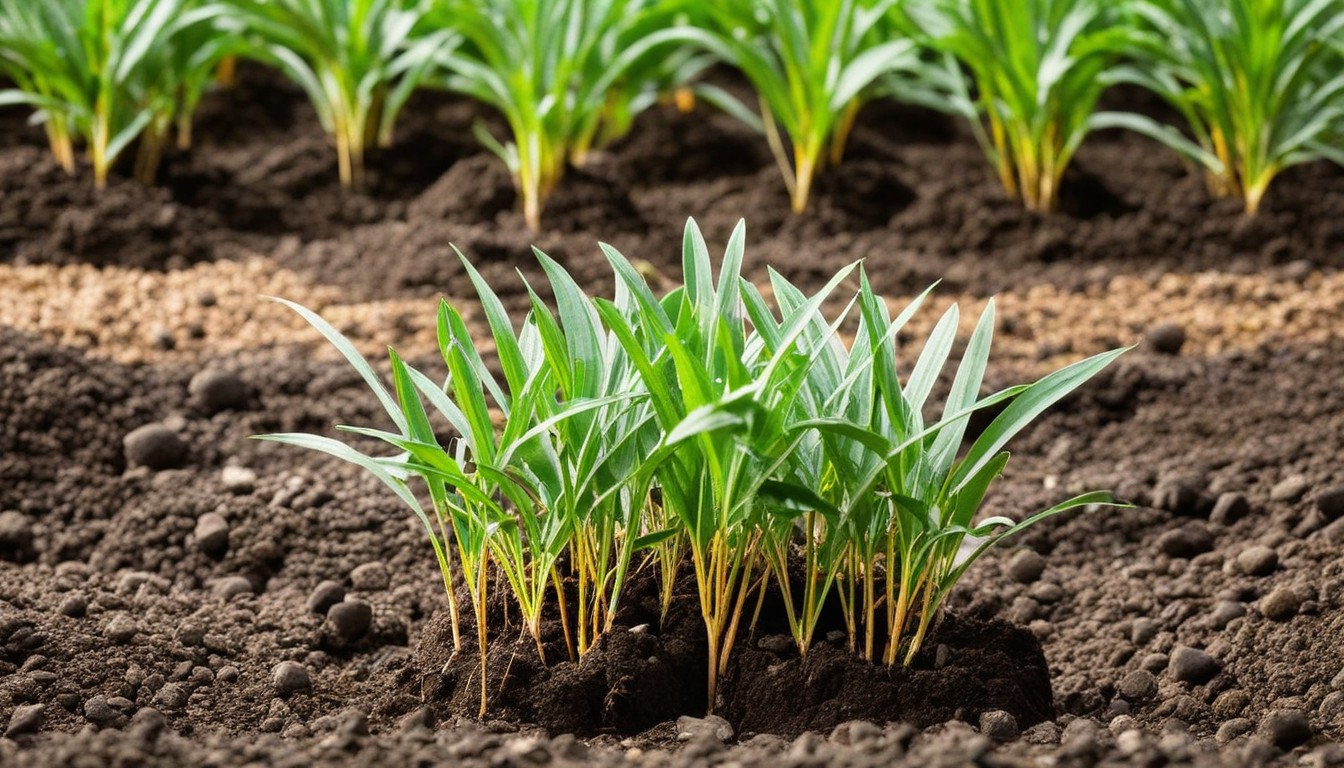In the realm of written composition, two crucial facets emerge as pivotal: “perplexity” and “burstiness.” The former delves into the intricacies of the text, while the latter scrutinizes the diversity in sentence structures. Human writers, by and large, exhibit elevated burstiness, seamlessly interweaving succinct and protracted sentences. Conversely, AI-generated sentences often lean towards uniformity in length. To ensure the content you produce attains an optimal blend of perplexity and burstiness, it is imperative to be mindful of these considerations.

Farmer Rajkumar Choudhry at his organic paddy farm in Lotmara village, Balaghat district, Madhya Pradesh Source:-30stades.com
The pursuit of enhanced revenue streams for farmers and the delivery of safer consumables to the public converge in the realm of organic farming. This method, distinguished by its avoidance of synthetic chemicals, adoption of organic fertilizers, and commitment to ecological preservation, stands as a beacon of profitability compared to conventional agricultural practices.
The agricultural landscape has witnessed a surge of interest in organic farming over the past decade. In essence, organic farming eschews synthetic chemicals, embracing organic manures and sprays while upholding ecosystem integrity.
Essential components of organic farming include crop rotation, composting, and the application of organic manure, all emphasizing ecological equilibrium. The outcome is a provision of safer, healthier food options for consumers, steering clear of synthetic chemical residues.
Beyond the commendable reduction in environmental pollution and the preservation of biodiversity, organic farming in India emerges as a more lucrative venture for various reasons, yielding both immediate and long-term advantages.
Short-Term Gains
Premium Prices:
Certified organic produce, endorsed by entities like NPOP, PGS, EU Organic, and Bio Suisse, commands a market premium of 35% to 50%. In certain instances, farmers realize sales at double or triple the standard rates. For instance, Diwakar Channappa, a Master’s in Social Work engaged in organic date farming in Chikkaballapura, Karnataka, fetches Rs310 per kg, surpassing non-organic date rates by a considerable margin.
Similarly, Santosh Devi, an eighth-pass farmer from Sikar, Rajasthan, consistently sells her organic fruits, including pomegranates, apples, and lemons, at rates surpassing market norms.
Engineer-MBA farmer Sankalp Sharma sets the bar at Rs70 per kg for his Sharbati wheat. Such premium rates are feasible due to heightened consumer demand for chemical-free and eco-friendly products, contingent upon the acquisition of necessary certifications.
Reduced Input Costs:
While the initial shift to organic farming may incur some costs, overall expenses diminish as organic farmers sidestep costly chemical fertilizers and pesticides. In Uttar Pradesh, wheat farmers transitioning to organic fertilizers witness a noteworthy drop in costs, from Rs6500 per acre to a more sustainable Rs3500 per acre.
Government Support:
Both Central and State governments extend support and subsidies to organic farming practices, encompassing financial incentives and technical guidance. The Paramparagat Krishi Vikas Yojana (PKVY) facilitates cluster-based organic farming, offering training, certification, and marketing assistance. A notable incentive of Rs50,000 per hectare for three years is granted, with 62% (Rs31,000) allocated as a farmer incentive towards organic inputs.
Healthier Work Environment:
The abandonment of harmful chemicals in organic farming cultivates a safer and healthier work atmosphere for farmers and laborers. The shift is exemplified by individuals like Mavuram Mallikarjun Reddy, a software engineer turned farmer in Telangana, and Shyam Singh Rod, cultivating a food forest in Shamli, Uttar Pradesh.
Long-Term Advantages
Soil Health Improvement:

AI-Generated Image
The cornerstone of agricultural success, soil health, takes precedence in organic farming. The approach centers around fortifying soil health through organic matter, cow dung, cow urine, cover crops, and crop rotations. This culminates in enhanced soil structure, water retention, and overall fertility over the long term.
Biodiversity Conservation:
Organic farming fosters biodiversity by forgoing synthetic chemicals detrimental to beneficial insects, birds, earthworms, and soil microorganisms. This promotes a balanced ecosystem on the farm, with natural bees and birds aiding in cross-pollination for healthier crops and superior yields.
Water Conservation:

AI-Generated Image
Organic cultivation, distinguished by adept aqua governance practices such as mulching and cover cropping, amplifies aqua detainment in the soil. Mitigated aqua runoff, entwined with prolonged soil humidity retention, curtails the necessity for recurrent crop hydration, yielding noteworthy fiscal prudence through diminished electricity consumption.
Climate Change Mitigation:
The carbon sequestration potential of healthy soils in organic farming emerges as a powerful tool for climate change mitigation. Acting as a carbon sink, robust soils contribute to offsetting greenhouse gas emissions.
Prerequisites for Organic Farming Success in India
Education and Training:
Farmers must engage in training programs and educational initiatives to grasp organic farming intricacies, encompassing crop rotation, composting, and pest management.
Infrastructure Support:
Essential infrastructure, including organic certification facilities, storage capacities, and transportation networks, is pivotal for sustaining the organic farming supply chain.
Access to Markets:
Establishing connections between organic farmers and markets valuing and remunerating premium prices for organic produce is indispensable for organic farming triumph. Enhanced market linkages ensure profitable product sales for farmers.
Research and Development:
Ongoing research and development tailored to Indian agro-climatic conditions can elevate productivity and efficiency in organic farming techniques.
Policy Support:
Endorsement through supportive government policies, encompassing subsidies, incentives, and regulatory frameworks, plays a pivotal role in motivating farmers to adopt organic practices. India’s existing supportive framework stands as a valuable resource that farmers should leverage.
By meticulously addressing these factors, the trajectory of organic farming in India can persist in flourishing, delivering economic, environmental, and health dividends to both farmers and consumers alike.










